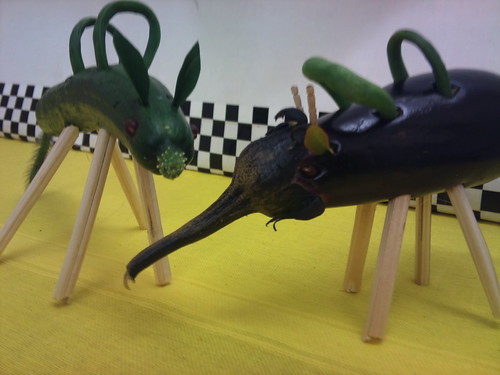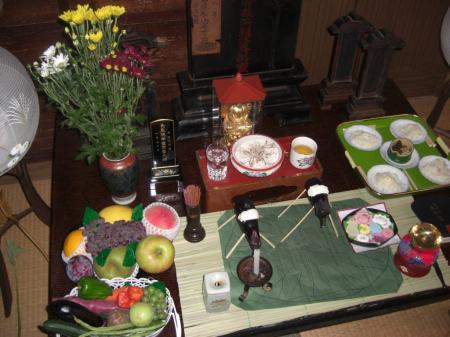Maybe I haven't talked much about Obon last year because I only knew it as a holiday for the dead, like Philippines' All Soul's Day on November 2. And basically, most of the practices are the same: go to the graves, bring food and flowers, light up some incenses, and offer some prayers. So, recently, I knew that the Obon practices can vary from family to family. But here's the general idea that I learned from some of the students.
Usually, Obon runs for three days. In some prefectures, two days. One student said that it is from August 13-14. One also said that it is only on August 13-14. But it depends on the calendar. So in these days, families can go to the graves or their ancestral houses.
Usually, the first born son, in recent times daughters too as long as they're first borns, handle the commemoration of their dead on Obon. The first borns take care of the ancestral house, thus it leaves them with the responsibility of handling Obon preparations.
Some families prepare an altar of good things. Most importantly, they prepare some vegetables that they make into a horse and a cow. According to one of the students who make this practice, they use a cucumber to be made into a horse and an eggplant is made into a cow. The horse cucumber is the bringer of the souls of the dead. The horse fetches the dead on the first day. On the last day, which is the third day, of Obon, the souls of the dead will ride the eggplant cow. The cow sends them back to the underworld or the world of the dead. They also some incenses. This is to help the souls find their way to their ancestral houses. Favorite foods and fruits of the dead are also put on the altar.
Cucuber horse and eggplant cow.
A Traditional Obon Altar
In general, Obon is a reunion time for most families. Many workers from big cities are given a chance to spend a week or two for holidays. Unfortunately for some, they don't have any Obon vacation but they can take a summer vacation a week or after from the Obon week.
As a foreigner, I somehow look forward to Obon because I can hear interesting things about their culture and practice on this special day. I'm also interested with the special foods and their corresponding meanings. I like this Japanese holiday! Even if it means a busy schedule for us teachers. ^_^
Images were from Google Images...


No comments:
Post a Comment